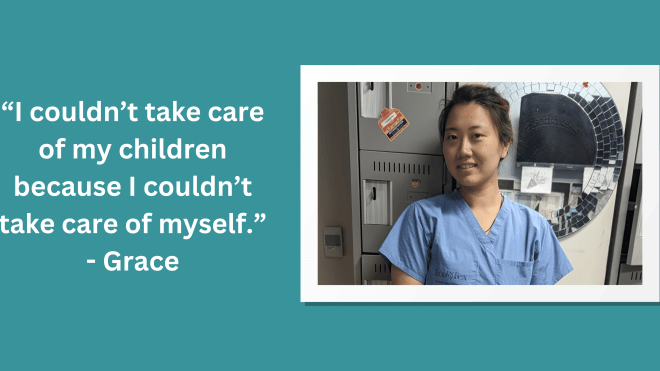
Black History Month is a time of year that should be recognized and acknowledged, and an occasion that calls us all to act – whether it be to celebrate, honour, reflect, learn, unlearn, support local businesses, or have open and vulnerable conversations about oppression, racism, discrimination, and Black History with peers/family members/friends.
The theme for this year’s Black History Month, chosen by the Association for the Study of African American Life and History (ASALH), is that of ‘Black Health and Wellness’ – a fitting theme considering our roles within a mental health setting. This piece aims to share a few voices from different perspectives of patients and staff at Ontario Shores on what Black History Month means, as well as how non-Black individuals can take an active role in supporting Black individuals in the hospital community and beyond.
Black History Month means the recognition of my ancestors, their journey, and achievements despite the many oppressions they encountered. - Ontario Structured Psychotherapy (OSP) Client
Black History Month is an opportunity for us to recognize the many contributions that people of African descent have made despite facing many forms of oppression. It is also a call to action for organizations to implement and practice anti-black racism and have this reflected in their work culture. For me, Black History Month is a reminder that what we do should be 12 months long and not just centered around one month; this month might give us the push we need to see the necessary changes that are required. -Kaysia Taylor, OSP Clinician
Black History Month is a time of celebration and reflection for me and my family. I look forward to it every year because I am able to learn something new about current and past Black leaders and initiatives that have historically been overlooked by mainstream media. This month reminds me to honour those who have come before me who had a vision for societal change and acceptance of Black individuals, all over the world. Their efforts have allowed me to enjoy and embrace an integrated society. Every day, I feel comfortable in my own skin and I am grateful. I could not even imagine living through the difficulty of segregation during slavery or in the 1950’s. I am inspired to speak out against injustice within my community. I feel a sense of obligation to better the lives of the next generation, as past leaders have. Non-black individuals can honour Black History Month by taking time to learn something new about Black culture. Sharing information over social media is a great way to increase awareness. I really enjoyed seeing many non-black individuals supporting and speaking out against injustice towards Black people during the 2020 Black Lives Matter Movement. I believe the only way to create lasting change in society is to collectively, regardless of ethnicity, rise up against oppression and inequality. – OSP Client
Chadwick Boseman (#wakandaforever) has been quoted as saying the following: “Fearlessness means taking the first step, even if you don’t know where it will take you…it means knowing that you reveal your character when you stand apart, more than when you stand with the crowd.” I am coming to learn that standing apart from the status quo is not only courageous but that it can also be extremely uncomfortable in that, for me, it usually means confronting a part of myself that I may not be proud of. In relation to Black History Month, that means owning and acknowledging that I approach this topic as a white, Canadian-born female with a lot of conscious and unconscious privileges that are attached to my social location. For me, Black History Month is a time for self-reflection on my own social location, privilege, and biases as well as a time to educate myself to learn how I can do better and to consider what I may need to unlearn in order to work on embodying the anti-oppressive lens that I strive to take in both my professional and personal worlds. Some ways that I, and others with a desire to be an ally, can do this is to acknowledge white privilege, have those uncomfortable conversations, be willing to listen, be an active bystander and challenge racism when we hear it, and apologize and own up to mistakes when they are made because I believe that for myself when I know better, I can work toward doing better all year round! -Krystin Srigley, OSP Clinician
Black History Month is a stark reminder of both the challenges faced by and the tremendous accomplishments of the Black community of Canada and worldwide. As a non-Black individual, I acknowledge that Black History Month is not about me, but that does not dissolve me of my responsibility to educate myself on Black history and my role to participate actively in dismantling anti-Black racism within the social, cultural, physical, and institutional environments I occupy. -Elnaz Saleh, OSP Clinician
The perspectives shared to provide a glimpse into the different layers and meanings of Black History Month to members of our community. It is a time of year that reaches all of us in different capacities and provides a platform for a variety of voices to be shared, actively listened to, and heard. In accordance with this year’s theme of ‘Black Health and Wellness, we would like to conclude by extending our gratitude and recognition for our Black health care workers who have made remarkable contributions to the well-being of others within the Ontario Shores community. We see you, we appreciate you, and we will continue to find ways to support you.



